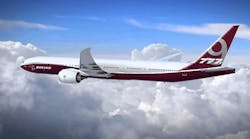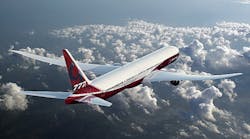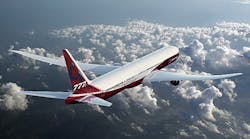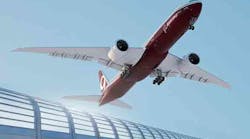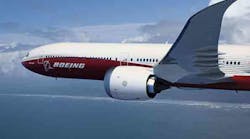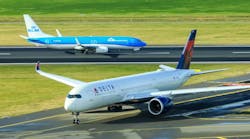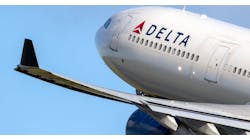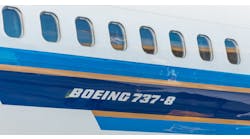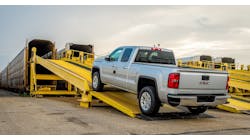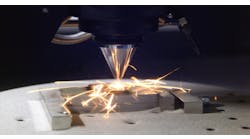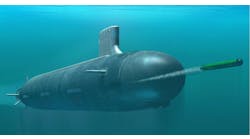Boeing Commercial Airplanes is due to inaugurate a $1-billion assembly plant in Everett, Wash., on Friday, May 20, where composite wings will be integrated to the fuselages of its new 777X wide body jet. The opening for the 1.3-million square-foot plant signifies continued progress in the redevelopment the 777 long-range aircraft series, and a boost to the confidence of the OEM’s West Coast operations – which in recent years have competed with the newer manufacturing base Boeing set up in North Charleston, S.C., as the center of its 787 Dreamliner assembly operations.
The 777X will be a redesigned version of the 777, which already is the world’s largest twin-engine aircraft. The new jets are intended to compete with the new Airbus A350, and will be available in two models, the 777-8X and 777-9X.
While the 777X is not set to make its first appearance until 2020, Boeing has over 300 orders and commitments for the jets from Lufthansa, Etihad Airways, Cathay Pacific, Emirates, Qatar Airways, All Nippon Airways, and other unidentified carriers. Assembly operations are scheduled to begin next year.
Along with a new engines (the GE Aviation GE9X), the redesigned aircraft will have longer wings formed in composite materials, and configured with folding tips more than 10 ft. long, so that the new jets can occupy the same gates that host the current 777 jets.
Boeing also is building a new plant in the St. Louis area where composite materials will be produced and composite parts will be formed.
Composites, or carbon fiber-reinforced plastics (CFRP), are made from two or more materials with different physical or chemical properties, layered with fibers, which combine to produce specific characteristics for strength, temperature and corrosion resistance, etc. Specific parts are produced by assembling the materials and fibers in a two-sided mold set; forming wing spars and surface panels this way is a highly automated process, with robotized systems laying the fibers and materials. The assembly is placed in an autoclave, in which high pressure and high temperature complete the formation of the composite structure. The 777X wings are anticipated to be the largest CFRP wings ever built.
While the new plant in Everett will integrate the CFRP wings to the jet fuselages, the wing structures will be produced in one of the existing plants there.
